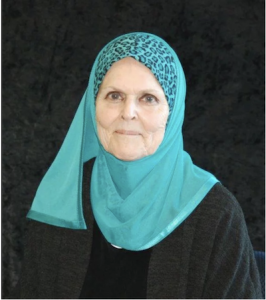Experienced educator revives her classroom to meet the needs of 21st century students
As an educator of nearly 40 years, Dr. Dale Hoffman has seen the classroom change in more ways than one. While students sitting quietly listening to lectures while taking pages of handwritten notes might have been commonplace earlier in her career, many of today’s students are seeking a more collaborative learning environment. And that’s not to mention the diversity of students themselves.
 “Students today come from vastly different personal and academic backgrounds,” says Hoffman, professor at Folsom Lake College. “As instructors, we’re competing with social media and cell phones that can distract them — not to mention many of our students also have families, jobs and may be caring for other relatives. There are fewer students today who are focused full-time on their education.”
“Students today come from vastly different personal and academic backgrounds,” says Hoffman, professor at Folsom Lake College. “As instructors, we’re competing with social media and cell phones that can distract them — not to mention many of our students also have families, jobs and may be caring for other relatives. There are fewer students today who are focused full-time on their education.”
Hoffman recognized that these changes in the make up of today’s students require change in her teaching methods.
“I’m a sociologist. We live in an economic and social system that’s developing at a rapid rate. The reality is if you don’t embrace change, you’re going to be left behind,” Hoffman says. “Change always has a benefit if we take the time to find it. If I’m going to force my students to sit in rows and take notes the way I did as a student, then pretty soon, I’m going to find that no one is completing my classes. I want my students to be as excited about learning as I am.”
So when Hoffman received an email that her favorite course, physical anthropology, was canceled due to low enrollment days before the spring 2019 semester was set to begin, she had a plan.
“I told myself that I’m going to use that extra time to become a better teacher,” Hoffman says. She enrolled in the ACUE Effective Teaching Practices course through Folsom Lake College’s partnership with ACUE and quickly began implementing what she was learning in the classroom.
“ACUE emphasized changing our approach to teaching. For many community college professors, you get the job because you’re very knowledgeable in a specific subject matter,” Hoffman explains. “Being knowledgeable might get you into the job, but it doesn’t make you a teacher. To be effective as a teacher, you need more than just knowledge.”
Instead of beginning her courses by presenting the material she’s going to cover, Hoffman would instead tell her students that, “We’re going to explore this topic together for the next several weeks. We’re both a part of this group, and my job is to make it exciting and help you achieve the goals you have set for yourselves.”
She also recognized the need to invite students into the learning process in an engaging way and began incorporating more videos, class discussions and hands-on labs to create a level of excitement in the classroom. She also examined how her testing, assignments and syllabus worked together from the viewpoint of a student, which allowed her to see disconnects where she could provide greater clarity. And quickly, she began to see differences in student outcomes.
“I’ve noticed that more of my students complete the course and participate in discussions, but what really hit me is the improvement in the quality of student work,” Hoffman says. “In my lecture class, when I aligned my materials in a way that makes sense and started to discuss grading rubrics with my students, I ended up with much better quality responses to my essay questions. Seeing them move through different levels of the thought process — not just naming and describing but interpreting and analyzing — is really rewarding.”
As an added benefit, the course has helped Hoffman in her other job as principal of Granite Adult School serving California state prisoners.
“ACUE was a life changing experience for me and enhanced my professional skills,” Hoffman says.
